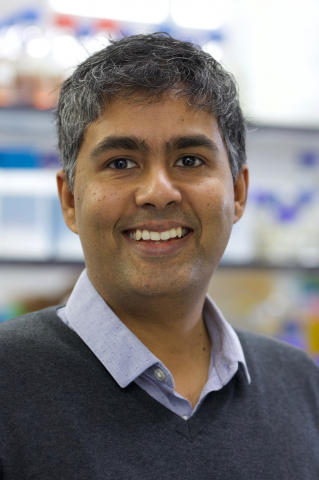Yogesh graduated with a Bachelor's degree in Chemical Engineering in 2000 from Birla Institute of Technology and Science (BITS), Pilani, India. He then went on to do a PhD in Immunology at the Max Planck Institute of Immunobiology and University of Freiburg in Germany under the supervision of Prof. Michael Reth, where he worked on B cell antigen receptor signalling and protein tyrosine kinase regulation. To apply structural biology methods to study cell signalling, Yogesh moved to Cambridge in 2009 to work at the MRC Laboratory of Molecular Biology. He was awarded a Marie Curie Intra-European Fellowship and an EMBO Long term fellowship to work on the structural basis driving linkage specificity in ubiquitin binding domains and in the ovarian tumour (OTU) family of deubiquitinases.
In February 2013, Yogesh relocated to the MRC PPU to establish his research program, focussing on ubiquitin signalling mechanisms. His research focusses on the mechanisms by which cells maintain protein homeostasis. Failure to degrade proteins in a timely manner is the underlying cause of diseases such as cancer and neurodegeneration. By studying how ubiquitylation regulates protein degradation and proteostasis they hope to better understand the molecular causes of disease that can be exploited for the development of effective therapeutic strategies.
In 2015 Yogesh received a prestigious ERC Starting Grant to investigate the function of ubiquitin and ubiquitin-like modifiers regulating T lymphocyte biology. He was selected as a EMBO Young Investigator in 2015. Yogesh is a recipient of the Lister Prize in 2017 from the Lister Institute of Preventive Medicine. In 2021 he received an ERC Consolidator Grant to investigate how branched ubiquitin signals function as priority signals in cellular stress responses. In 2022, he was made the Professor of Cellular Biochemistry.


